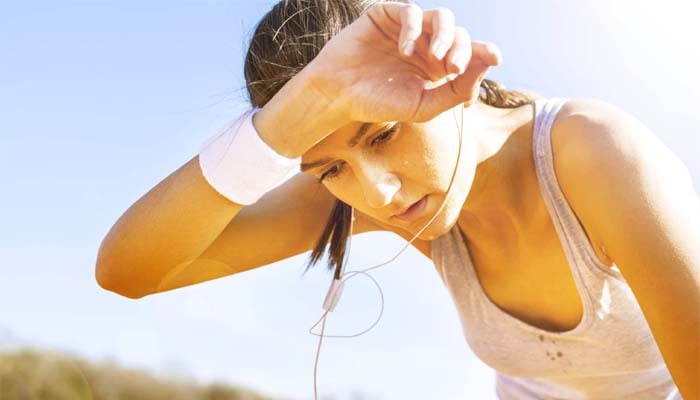
Dehydration occurs when fluid loss surpasses consumption, causing electrolyte imbalances in your body. In the US, over 75% of the population experience chronic dehydration.
It’s extremely dangerous for children and elderly individuals. Identifying symptoms early is pivotal, as untreated dehydration can lead to serious mental and physical decline needing urgent medical attention.
Not urinating or very dark urine
To test dehydration, look at your urine colour. A Pale yellow colour detects proper hydration, while a dark yellow colour is a sign of moderate to severe dehydration.
Even not urinating for several hours is a sign of severe dehydration requiring medical assistance. Drink small, frequent sips of water. Carry a water bottle and set reminders to stay hydrated all over the day.
Pinching skin test
Skin elasticity can indicate dehydration. Perform a simple pinch test on the skin of your hand—if it returns slowly or “tents,” it shows moderate to severe dehydration.
Drink water for mild cases and urgently seek medical aid if dehydration signs appear.
Rapid heartbeat and breathing
Increased heart rate and rapid breathing while performing any physical activity are normal; however, if they persist afterwards or frequently happen without exertion, it may indicate severe dehydration.
Reducing blood volume strains the heart. It’s essential to urgently get medical assistance—IV fluids with electrolytes such as Ringer Lactate may be required for quick rehydration.
Dizziness
Did you know that 75% of your brain consists of water? So staying hydrated is important for mental function.
Dehydration may lead to dizziness or lightheadedness, indicating a severe fluid deficit. Seek your doctor to rehydrate slowly with water or electrolyte drinks. If symptoms continue, seek emergency care. Boost hydration with water-rich foods such as cucumbers, watermelon, tomatoes, and grapes.
Unconsciousness
Severe dehydration may lead to unconsciousness hypotension or dizziness. If someone is feeling so lethargic, it may be a sign of critical fluid loss.
It’s crucial to urgently seek emergency treatment, which typically includes rehydration therapy to restore fluid balance.












